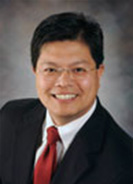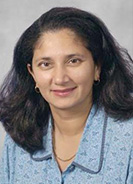Access advanced pediatric cancer treatment close to home in South Texas at University Health. Your family will find expert care for all types of cancer at our academic medical center.
About Childhood Cancer
Childhood cancers usually happen because of changes (mutations) in the genes of growing cells. When abnormal body cells grow very fast and spread to other parts of the body, they cause cancer.
A tumor is a cluster of abnormal cells. Tumors can be benign (with no cancer cells) or malignant (with cancer cells). Malignant tumors can damage the body, preventing it from working right, and make your child very sick.
Caring for Your Child With Cancer
University Health cares for young patients from birth through age 29. Children and teens need cancer treatment that addresses their unique needs, which are different from those of adults. Our cancer care team concentrates on caring for your child’s physical and emotional needs along with your family’s.
Childhood Cancers We Treat
You'll find complete care for cancers of the:
- Blood, such as leukemia, Hodgkin and non-Hodgkin lymphoma
- Bone, such as osteosarcoma and Ewing sarcoma
- Brain and spinal cord, including neuroblastoma
- Eye, such as retinoblastoma
- Germ cell tumors
- Kidney, such as Wilms tumor
- Langerhans cell histiocytosis (LCH)
- Liver, such as hepatoblastoma
- Soft tissue sarcoma, such as rhabdomyosarcoma
We have specialized expertise in diagnosing and treating uncommon and complex types of cancers.
Specialized Care for Teens and Young Adults
Benefit from our broad experience providing care and treatment for adolescent and young adult (AYA) cancer. Expect dedicated support for these age groups' needs because they face different challenges than younger children and adults.
Multidisciplinary Care Team
Count on your child getting comprehensive services and treatments from a team of doctors with different specialties. This multidisciplinary approach to care gives your child the most care options and best possible outcome.
How We Diagnose Childhood Cancer
Symptoms of cancer can be mistaken for other childhood illnesses at first. After initial tests, your child’s pediatrician or primary care provider may recommend seeing a pediatric oncologist (cancer doctor).
First Visit
At your child’s first appointment with us, expect your cancer doctor to:
- Ask about your child’s health history and perform a physical exam
- Schedule medical tests, such as:
- Blood and urine labs
- Imaging tests to find cancer inside the body
- Pathology tests to exam tissue or histology tests to exam cells for cancer
- Molecular genetic tests to check for certain changes in genes
Cancer Education
You'll receive educational pamphlets, booklets and other information about cancer and your child's treatments.
Referrals
If you're a physician, find out how to refer your patient.



